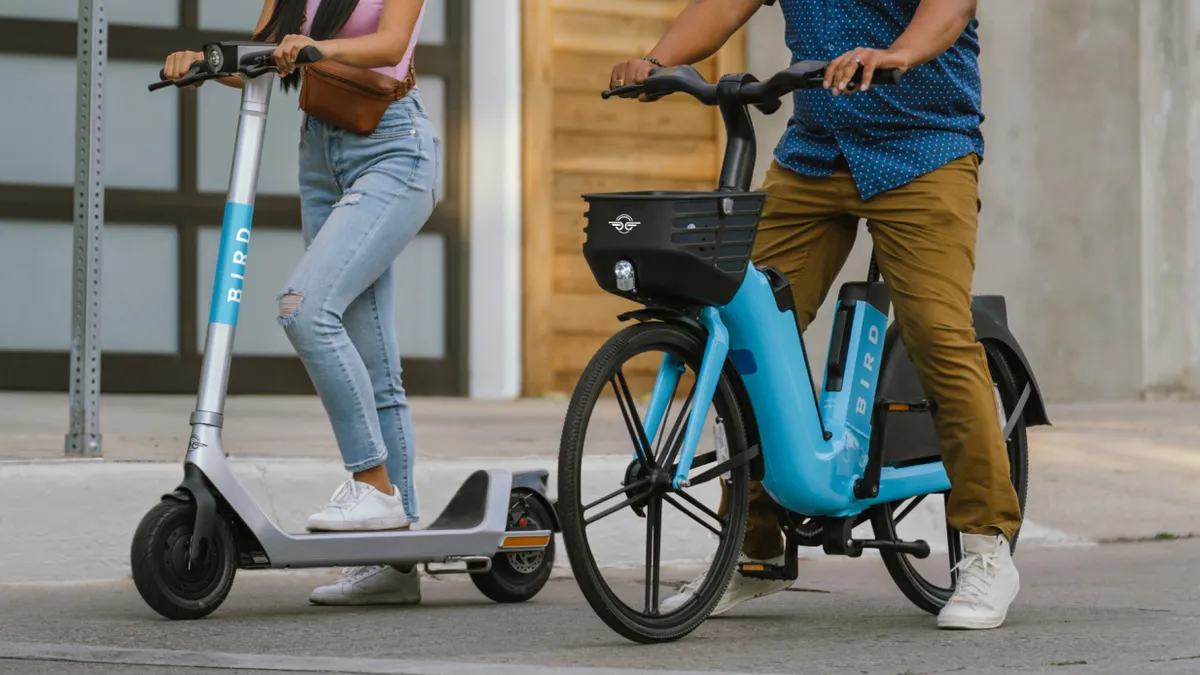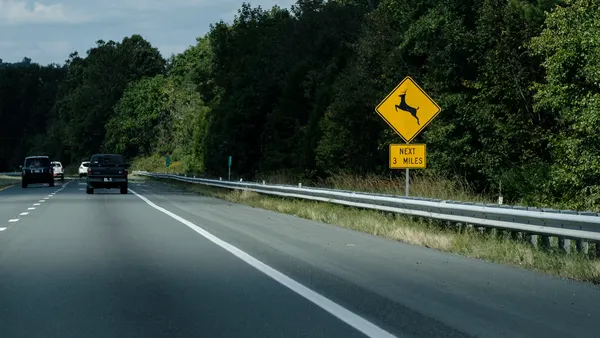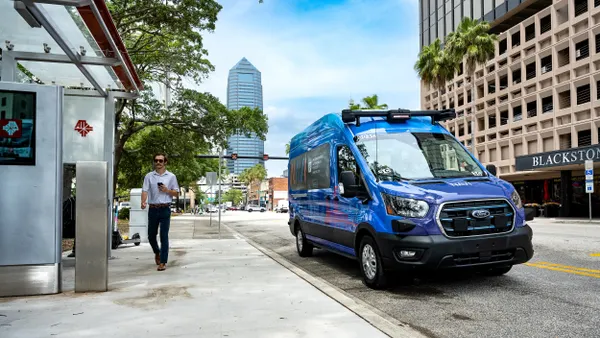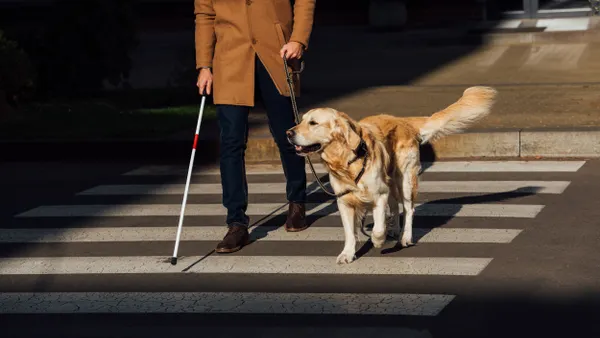Dive Brief:
-
Shared micromobility operators Bird, Lime, Spin and Superpedestrian have released 10 recommendations on how local governments can successfully integrate shared electric bikes and scooters into their transportation systems, according to a press release Monday.
-
The guidance may “help cities address points of friction that have hampered programs in the past,” the release says. The companies will share their recommendations today at the National Association of City Transportation Officials conference in Denver.
-
In a joint statement, the companies’ CEOs said the “framework has the potential to significantly improve the experience for riders and non-riders alike, while allowing cities to better manage these services over the long-term.”
Dive Insight:
The recommendations come as many shared micromobility services pilots end, and local governments make them permanent, the release says. Local governments have struggled to integrate shared micromobility into their transportation networks, especially dockless e-bikes and e-scooters, as they deal with sidewalk clutter and other issues that pose safety and logistical challenges for pedestrians and other road users. Some cities, including Atlanta, Detroit and St. Louis, previously banned or restricted shared e-scooter use to deal with those challenges.
Shared micromobility operators, including Bird, have also exited markets quickly and without much notice to improve their finances, leaving local transportation officials scrambling to provide other transportation options for their residents. In a company blog explaining its October exit from several small- and mid-sized markets, Bird said those cities’ “lack of a robust regulatory framework” had prevented the company from becoming “economically viable.”
Recent economic headwinds, including recession fears and a lack of available venture capital, have also contributed to operators’ financial woes.
Bird, Lime, Spin and Superpedestrian’s recommendations to improve shared micromobility include:
- Limiting the number of micromobility operators based on market size, including two operators for 1,000-2,000 scooters and three for more than 2,000 scooters.
- Limiting initial fleet size to one vehicle per 500 people.
- Minimum contract terms to encourage long-term investment and rider adoption, including two-year agreements for pilots and three to four years for permanent programs.
- Setting standardized, per-ride fees before vendor selection to ensure operators’ financial viability, and enables city revenue from micromobility to grow with increased usage.
- Following standardized data-sharing requirements, such as the Mobility Data Specification and General Bikeshare Feed Specification.
- Creating operator selection processes that address long-term needs and include performance-based criteria and regulations rather than specific technologies or operational practices.
- Allowing people to use shared micromobility with minimal restrictions on where and when they can use it.
- Setting parking requirements based on population and local activity, existing infrastructure and pedestrian traffic to enable a mix of dockless and mandatory parking that meets local needs.
- Limiting shared e-bike and e-scooter speeds to 15 mph.
- Encouraging but not requiring helmet use.
In a statement, Sean Weidel, deputy commissioner of the Chicago Department of Transportation, and Shared-Use Mobility Center CEO Benjamin de la Peña each expressed support for performance-based fleet standards like those used in the Windy City’s scooter license program.
"SUMC supports the development of performance-based regulations, driven by insights from the millions of trips taken on shared bikes and scooters, that can balance city goals with the realities of operating shared micromobility systems," de la Peña said. "An important next step in this work is understanding how the metrics proposed in this framework are realized in real-life applications and their implications on creating a sustainable and equitable shared system."












